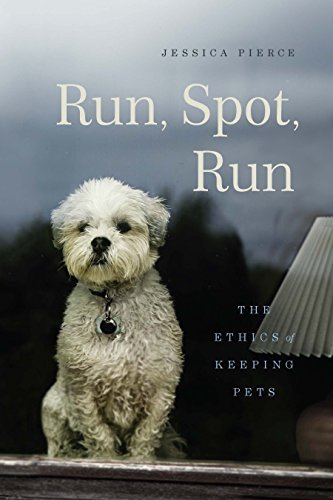What do you think?
Rate this book


306 pages, Kindle Edition
First published April 5, 2016
Some people hate this book because Jessica Pierce presents humans' self-centered thought and behavior, cruelty, and cognitive dissonance regarding other species. Everyone I’ve given or recommended this book to has reacted negatively. Most failed to read past the blurb and beginning pages.
This experience reminds me of discovering friends and family that are Trump supporters. I’m appalled that they refuse to consider and recognize that other species love, suffer, and possess some degree of sentience. BTW, all the people I introduced to this book own pets.
I thoroughly enjoyed reading Run, Spot, Run. The author has ethics expertise and references assertions. She vividly describes ways we fail to recognize, mistreat, slaughter, and make other species (other lives) mass-produced commodities. The different angles used in chapters promote critical introspection and shows our entanglement in a nightmare of practices.
This book influenced me to change my behavior. It is a must-read that should become a classic, like Rachel Carson‘s Silent Spring. The only con, and it is minor, was a woo-woo part on psychic communication. Pseudoscience doesn’t fit in this scholarly work.